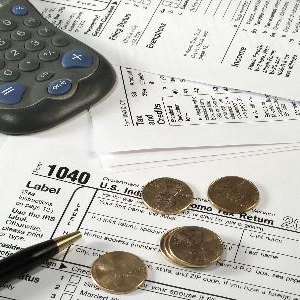
Gambling losses are indirectly deductible on your income tax return in the state of Wisconsin. While you don’t claim them on your actual Wisconsin income tax return, you do claim them on your federal income tax return by itemizing deductions, for which you receive a credit on your Wisconsin state income tax return. The rule for claiming gambling losses is that you can only claim up to the dollar amount you won gambling. If Form 1099G from the IRS shows gambling winnings of $5,000, you can claim losses of no more than $5,000, even if your losses were far greater. Before you can begin your Wisconsin state tax return you must complete your federal income tax return.
Use Form 1099G to report your gambling losses on your federal income tax return. The IRS mails this form no later than Jan. 31 each year. It shows the total amount of your gambling winnings, which you must claim on Form 1040, line 21.
Obtain Schedule A, the itemized deductions form for your federal income tax return. Claim your gambling losses on line 28. Calculate the total of your itemized deductions and report the dollar amount on line 30 of Schedule A and on line 40 of Form 1040.
Obtain and begin working on Form 1, the Wisconsin state income tax return. Report your federal adjusted gross income on your Wisconsin return by transferring the dollar amount on line 37 of Form 1040 to line 1 of Form 1.
Input your itemized deduction total from Schedule A of Form 1040 on line 20 of Form 1. Because gambling losses are included in the total of your itemized deductions, this is how you claim them on your Wisconsin state income tax return.
References
- Internal Revenue Service: Form 1040
- Internal Revenue Service: Schedule A Itemized Deductions
- Wisconsin Department of Revenue: Form 1
- Bankrate: Reporting Gambling Winnings and Losses
- Internal Revenue Service. "Topic No. 419 Gambling Income and Losses." Accessed Aug. 19, 2020.
- Internal Revenue Service. "Publication 529: Miscellaneous Deductions," Page 10. Accessed Aug. 19, 2020.
- Internal Revenue Service. "About Form W-2 G, Certain Gambling Winnings." Accessed Aug. 19, 2020.
Writer Bio
Tiffany Raiford has several years of experience writing freelance. Her writing focuses primarily on articles relating to parenting, pregnancy and travel. Raiford is a graduate of Saint Petersburg College in Florida.

